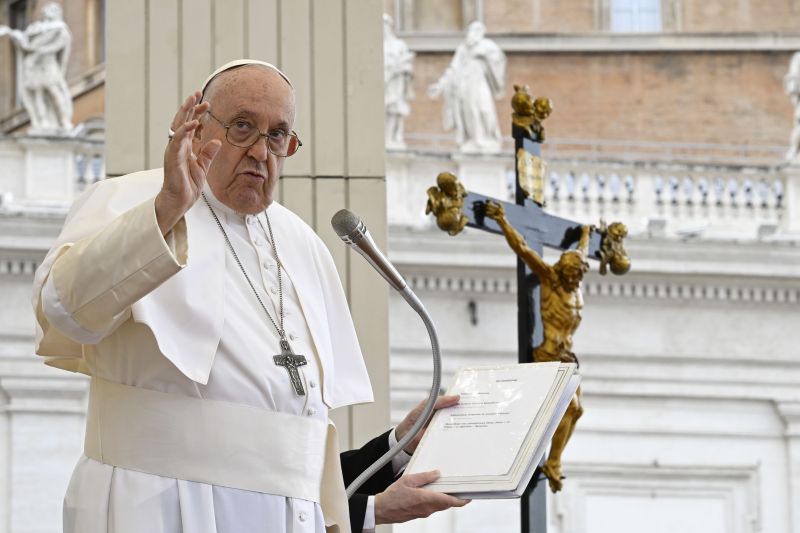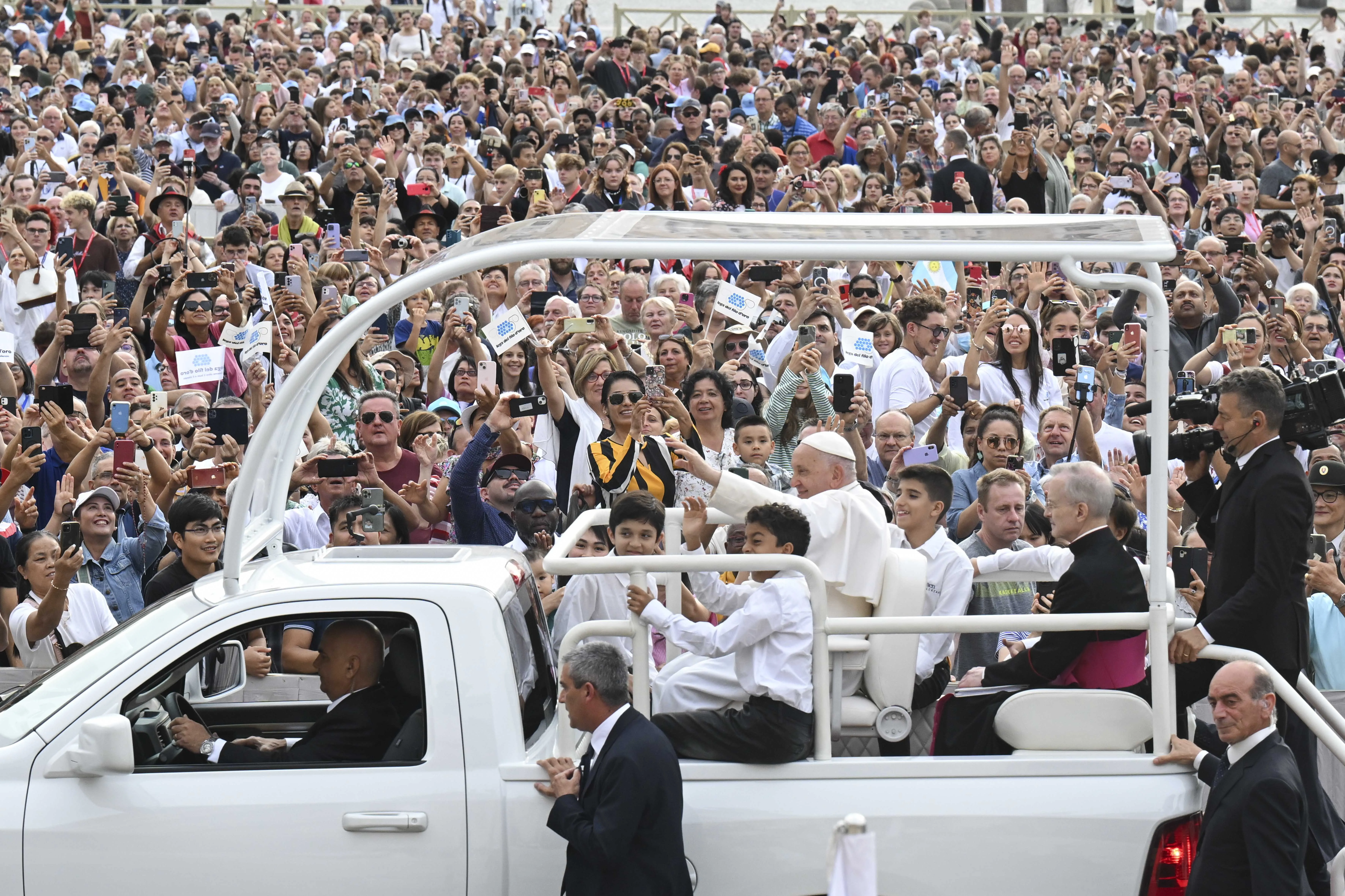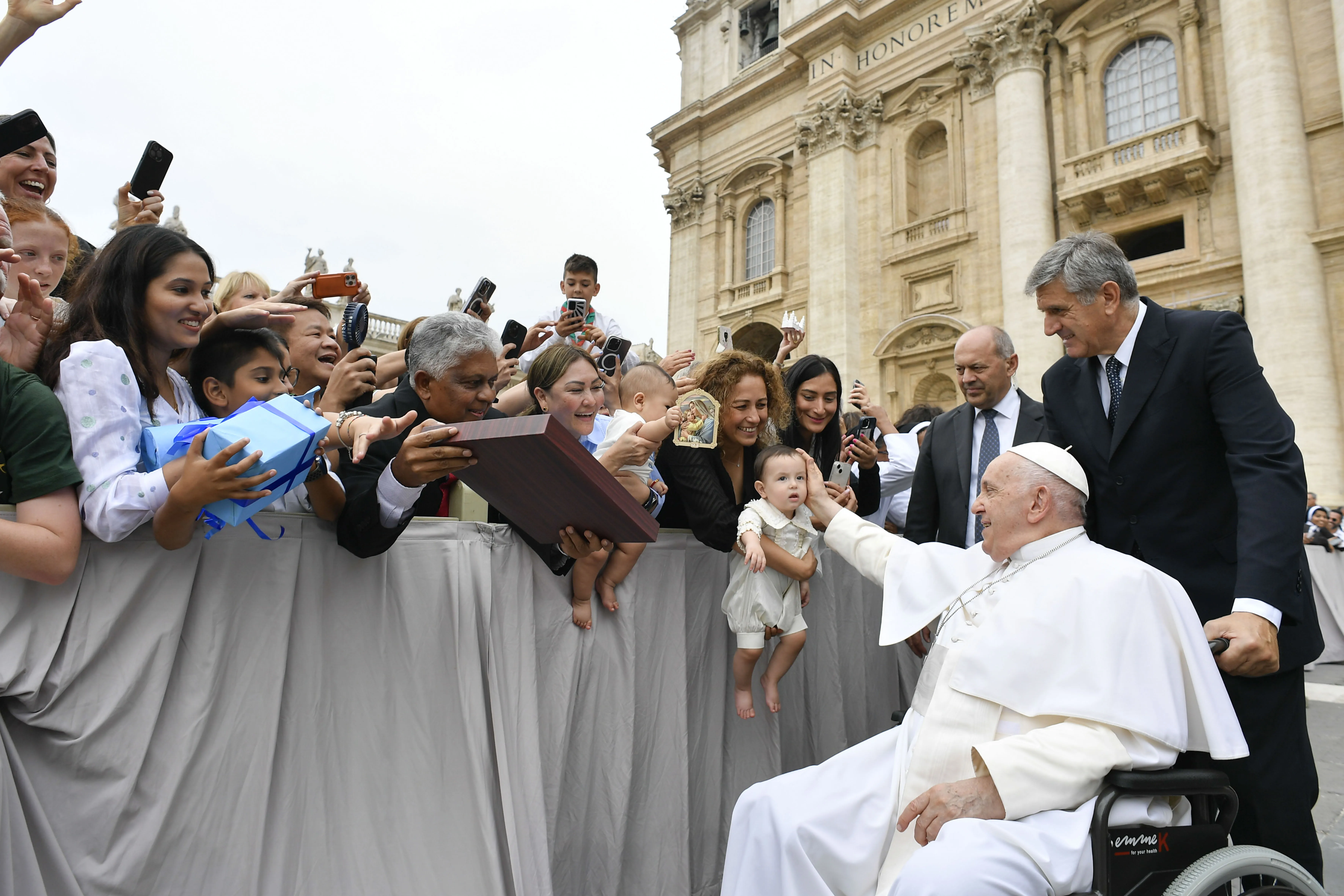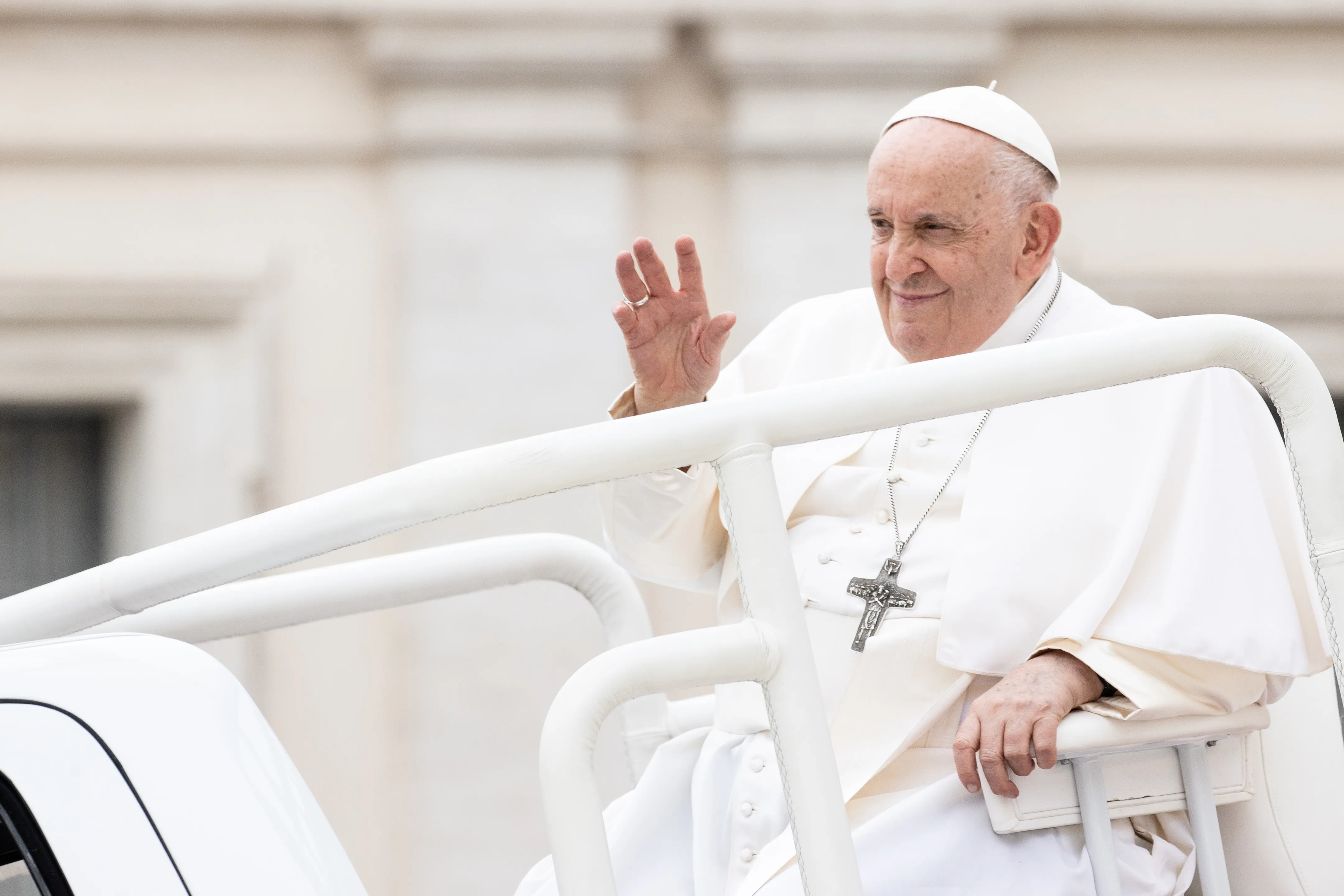
Vatican City, Sep 20, 2023 / 10:04 am (CNA).
Pope Francis extolled Wednesday the “apostolic zeal” of St. Daniele Comboni, an Italian missionary priest and bishop who fought to end slavery in Africa.
Comboni witnessed “the horror of slavery” as a missionary in the mid-19th century in what is now Sudan. In his writings, he spoke of slavery more than 450 times and decried how the slave trade “degrades humankind and turns human beings, endowed like all of us with the light of intelligence, a ray of divinity and image of the most holy Trinity, to the dismal condition of animals.”
Pope Francis shared the “energetic and prophetic” life story of the founder of the Comboni missionary orders during his general audience on Sept. 20.
“Comboni’s dream was that of a Church who makes common cause with those who are crucified in history, so as to experience the resurrection with them,” Pope Francis said.

Speaking to an estimated 15,000 people in St. Peter’s Square, the pope pointed to Comboni as an example of how Christians are “called to fight every form of slavery.”
“Slavery, like colonialism, is not something from the past, unfortunately,” he added.
“In Africa … political exploitation gave way to an ‘economic colonialism’ that was equally enslaving,” he said, quoting a speech he gave in the Democratic Republic of Congo earlier this year.
Comboni summed up his vision for evangelization in Africa with the words “Save Africa with Africa,” a mindset that Pope Francis called “a powerful insight devoid of colonialism.”
“St. Daniel Comboni wanted every Christian to participate in the evangelizing enterprise,” he said. “With this spirit, he integrated his thoughts and actions, involving the local clergy and promoting the lay service of catechists.”

Comboni was born in 1831 into a poor family in a town on the shores of Lake Garda in northern Italy. After discovering his vocation to the priesthood, he was inspired by the stories he heard from missionary priests returning from Africa.
At the age of 26, he joined a missionary expedition bound for Khartoum, Sudan, in 1857, three years after he was ordained to the priesthood.
After two years in Africa, three of the five other missionaries Comboni had traveled with had died, and Comboni also became ill.
Comboni wrote to his parents: “We will have to toil, sweat, die, but the thought that we sweat and die for the love of Jesus Christ and the health of the most abandoned souls in the world is too sweet to make us give up on the great undertaking.”

The Italian missionary priest later wrote that the African people “have taken possession of my heart that lives for them alone.”
Pope Francis highlighted how “Comboni’s great missionary passion” came from “the joy of the Gospel, drawn from Christ’s love, which then led to Christ’s love.”
The priest wrote: “The Eucharistic Jesus is my strength.”
Comboni was appointed apostolic vicar of Central Africa and ordained a bishop in 1877. He died in Sudan in 1881 amid a cholera epidemic. His legacy lives on in the religious orders he founded, which are now known as the Comboni Missionaries of the Heart of Jesus and the Comboni Missionary Sisters, and are present in 42 countries on five continents.
“St. Daniele testifies to the love of the Good Shepherd who goes in search of the one who is lost and gives his life for the flock. His zeal was energetic and prophetic in being opposed to indifference and exclusion,” Pope Francis said.
“In his letters, he earnestly called out his beloved Church who had forgotten Africa for too long. … His witness seems to want to repeat to all of us, men and women of the Church: ‘Do not forget the poor — love them — for Jesus crucified is present in them, waiting to rise again.’”
If you value the news and views Catholic World Report provides, please consider donating to support our efforts. Your contribution will help us continue to make CWR available to all readers worldwide for free, without a subscription. Thank you for your generosity!
Click here for more information on donating to CWR. Click here to sign up for our newsletter.






Comboni’s three missionary priest associates may likely have died of malaria, which remains a deadly disease in Africa, its vector the anopheles mosquito. In those days the missionaries took quinine as a preventative and antidote. If it was available in the bush [the bush is any out of reach area].
Sudan was also a very dangerous mission due to Muslim extremists. Shortly after Bishop Comboni died in 1881, British General Charles Gordon was sent to Khartoum to evacuate Anglo Egyptian military under threat from the fanatical followers of the Mahdi [Muhammad al Mahdi]. He was killed in the effort 1885. British public considered Gordon a martyr saint. Europeans who were living in Khartoum [Saint Josephine Bakhita was enslaved at Khartoum and purchased from her Muslim owners by the Italian consulate in 1883] and incarcerated by the Mahdists were terribly abused. Italian missionaries, Comboni Missionaries of the Sacred Heart [originally Sons of the Sacred Heart of Jesus] who were either imprisoned and escaped, or knew of the terrible conditions reported this to British authorities in London. It’s said to have been an influence in Britain sending Gen Herbert Kitchener, who defeated the Mahdi at Omdurman 1898.
While Black Africans also enslaved Africans and frequently sold members of their tribe to Muslim slave traders operating out of the Caliphate in Zanzibar, in the West of Africa the Europeans, British, Portuguese, French, Belgian, Spanish, and US slave traders were deeply involved as we know in the slave trade. Britain was first to prohibit the trade the others eventually following.
Slavery as most of us know was rooted in most cultures for aeons. Israel had slaves. European Christians had slaves. Although perhaps its most notorious manifestation was in Africa. Joseph Conrad’s The Heart of Darkness reveals the horrors of being an African in the Congo under Belgian rule and King Leopold. A so called Christian leader Leopold’s sole concern was wealth and power. Human lives meant little. My students in Malawi and Tanzania were adamant in their condemnation of any form of slavery. Although Saint Bahkita was treated well by the Italian consulate, as was Saint Benedict the Moor [allegedly of Ethiopian descent] of Sicily well treated prior to his freedom and entry into the Franciscan order.
Slavery needs to be banished from the face of the Earth. Human beings are made in the image and likeness of the divine – declare Scriptures. Saint Daniele Comboni – Pray for us.